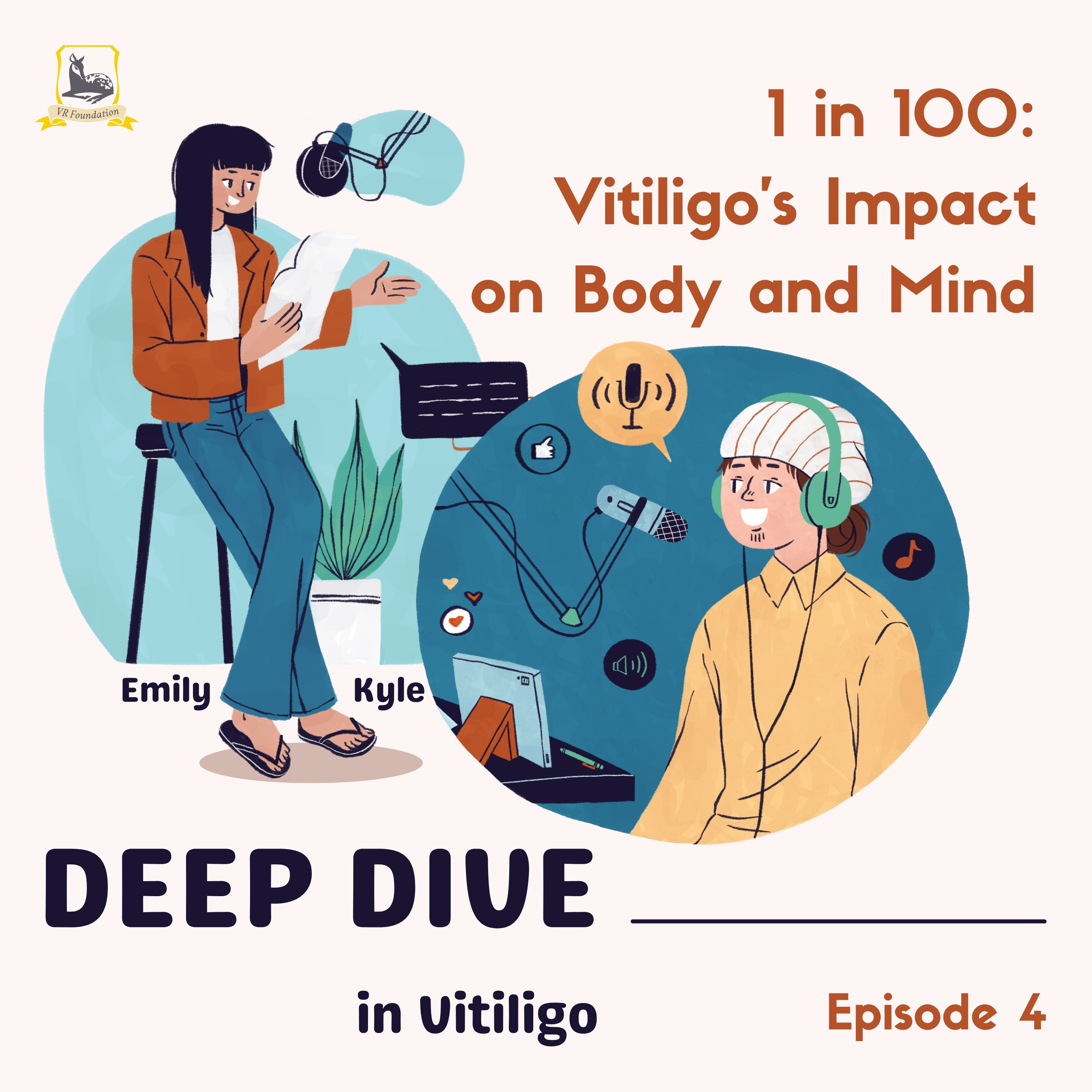Our work is entirely funded by private donations – we receive no money from government. Your money will help us continue funding research into vitiligo and supporting people affected by the condition.
Podcast
1 in 100: Vitiligo’s Impact on Body and Mind (Ep. 4)
Join us as we untangle the complexities of vitiligo treatment and its far-reaching effects on patients’ lives. From the frustrating trial-and-error of therapies like topical corticosteroids, calcineurin inhibitors, systemic steroids, and phototherapy to the emotional toll of the condition, we explore how vitiligo is far more than skin deep.
A recent study reveals that nearly 30% of people with vitiligo also have other autoimmune conditions like eczema, Hashimoto’s thyroiditis, or alopecia areata. This highlights the need to view vitiligo holistically, as it not only affects physical health but also significantly impacts mental well-being, contributing to higher rates of depression, anxiety, and insomnia.
We’ll also discuss why treatment outcomes vary for children and adults, the barriers many face in accessing care, and how vitiligo challenges our healthcare system to provide better, more comprehensive support. Beyond the science, we reflect on how to create a more inclusive and understanding world for those living with vitiligo, offering insights and hope for a brighter future.

FAQOther Questions
- Is it Bitiligo? Vitaligo? Veteligo?
There are so many different ways that people try and spell or even pronounce Vitiligo. Here are some common mis-spellings: bitiligo, vitigo, vitaligo, vitilago, vitiglio, vita...
- What's better: laser or phototherapy?
Laser therapy is actually a type of phototherapy. Both rely on light to trigger changes in the skin, but they work differently. Phototherapy usually means a narrow-band UV (NB-...
- What's the status with official recognition of World Vitiligo Day?
In 2016, the United Nations marked World Vitiligo Day in its International Calendar of Disability Events. However, it was removed in 2019 when the calendar was streamlined to 'M...
Though it is not always easy to treat vitiligo, there is much to be gained by clearly understanding the diagnosis, the future implications, treatment options and their outcomes.
Many people deal with vitiligo while remaining in the public eye, maintaining a positive outlook, and having a successful career.
Copyright (C) Bodolóczki JúliaBy taking a little time to fill in the anonymous questionnaire, you can help researchers better understand and fight vitiligo.